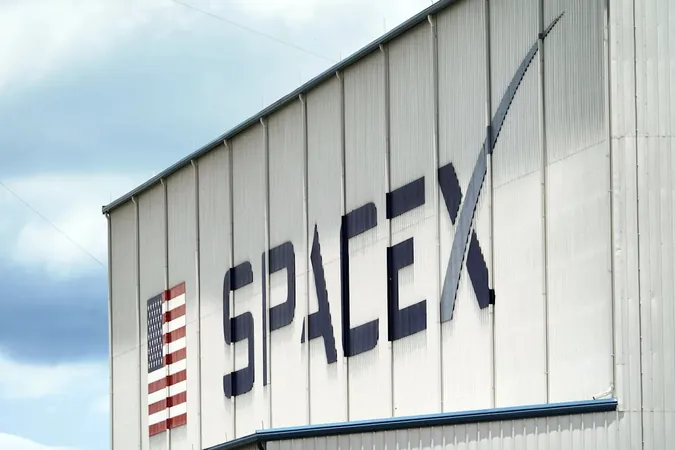
NASA's Acting Chief Champions Moon and Mars Missions Amid Funding Challenges
2025-09-09
Author: Jacques
NASA's Vision for Space Exploration
In an exciting podcast announcement, NASA's acting administrator, Sean Duffy, outlined a bold vision for the agency's future, emphasizing the urgent need to keep the U.S. at the forefront of space exploration. His commitment includes returning Artemis astronauts to the Moon before China and paving the way for human missions to Mars.
Challenges and Budget Cuts
Duffy's remarks came shortly after a Senate hearing raised questions about the Trump administration's dedication to space leadership, especially in the context of proposed budget cuts for fiscal 2026. These cuts threaten critical programs like the Space Launch System and the Orion Crew capsule, as well as the lunar Gateway space station.
"We have a long history of being good neighbors in space, but not everyone shares that reputation," Duffy stated, underpinning his urgency as he embarks on this leadership role.
Reassessing NASA's Focus
While acknowledging NASA's scientific achievements, Duffy is clear: the agency's focus should pivot towards human exploration. He believes that other government agencies can handle climate research while NASA concentrates on missions to the Moon and Mars, pushing the boundaries of human achievement.
The Cost of Space Missions
With each upcoming Artemis lunar mission estimated to cost a staggering $4 billion, Duffy cautions that maintaining such high expenditures is unsustainable. "If this continues, we won't have a Moon program at all," he warned, emphasizing the need to reduce costs and ensure a sustainable presence in space.
Commercial Opportunities and Collaborations
Duffy, who also serves as Secretary of Transportation, highlighted the importance of commercial partnerships. He sees potential in streamlining processes between NASA and agencies like the FAA to enhance efficiency for commercial launches.
"There's only one agency dedicated to space exploration, and that's us. We must lead the charge while still engaging with the private sector to ensure a smooth transition as we phase out the aging International Space Station (ISS) by 2030," he stated.
Funding Concerns and Future Plans
The proposed budget cuts for NASA have raised concerns, with a potential drop of $6 billion or 24% exacerbating fears about future missions. Despite this, Duffy remains hopeful that the cooperation between U.S. House and Senate appropriators might maintain funding levels closer to previous budgets.
The Global Space Race and Cooperation with Rivals
Amid geopolitical tensions, Duffy emphasized the importance of continuing collaboration in space with nations like Russia, particularly as the ISS transitions to commercial ownership. He views this cooperation as vital to the future of international space endeavors.
Inspiring the Future of Space Exploration
As the podcast drew to a close, Duffy shared his desire to inspire the American public not just by recounting past achievements, but by painting a vivid vision for the future of NASA. "We must sell this vision and get people excited about what lies ahead," he encouraged.
A Call to Action for Innovation
With potential partnerships with companies like Axiom Space, Blue Origin, and SpaceX on the table, NASA is poised to propel the commercial space industry forward, demonstrating a commitment to American innovation and leadership.
Under Duffy's leadership, the future of NASA is positioned not just to reflect on triumphs of the past but to boldly step into a new era of exploration, aiming for the Moon, then beyond.









 Brasil (PT)
Brasil (PT)
 Canada (EN)
Canada (EN)
 Chile (ES)
Chile (ES)
 Česko (CS)
Česko (CS)
 대한민국 (KO)
대한민국 (KO)
 España (ES)
España (ES)
 France (FR)
France (FR)
 Hong Kong (EN)
Hong Kong (EN)
 Italia (IT)
Italia (IT)
 日本 (JA)
日本 (JA)
 Magyarország (HU)
Magyarország (HU)
 Norge (NO)
Norge (NO)
 Polska (PL)
Polska (PL)
 Schweiz (DE)
Schweiz (DE)
 Singapore (EN)
Singapore (EN)
 Sverige (SV)
Sverige (SV)
 Suomi (FI)
Suomi (FI)
 Türkiye (TR)
Türkiye (TR)
 الإمارات العربية المتحدة (AR)
الإمارات العربية المتحدة (AR)